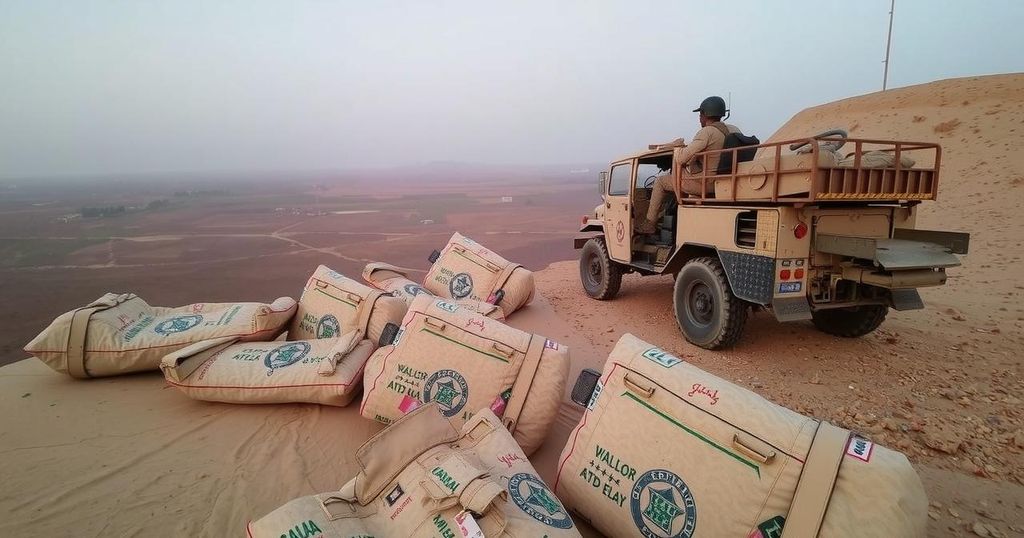The Lebanese Armed Forces and UNIFIL conducted a joint patrol in Chamaa following the withdrawal of Israeli forces, marking a crucial development in regional security efforts post-ceasefire. Despite this, Israeli military actions continue, posing risks to local civilians. Diplomatic visits from French officials aim to bolster peacekeeping efforts in the area, while recent incidents highlight the ongoing volatility.
In a notable development following the cessation of hostilities, a joint patrol comprising members of the Lebanese Armed Forces and UNIFIL entered Chamaa, marking the first such operation since the ceasefire agreement was enacted over a month ago. The patrol follows the withdrawal of Israeli forces from the area, which had been engaged in military operations that involved advancing into various border communities and conducting extensive demolitions purportedly aimed at Hezbollah facilities.
As the Israeli forces continue their phased withdrawal, which has extended beyond the stipulated ceasefire timeline, the Lebanese military is prepared to reinforce its presence and undertake the elimination of illegal weaponry in accordance with United Nations Security Council Resolution 1701. Engineering teams from the Lebanese Armed Forces have been dispatched to assess and clear unexploded ordnance in Chamaa in anticipation of a permanent military presence.
Further complicating the regional security dynamics, Israeli military spokesperson Avichay Adraee issued a warning on social media, advising southern Lebanese residents against returning to their homes or moving within a defined buffer zone. He emphasized that while military action is not directed at civilians, those who defy the warning risk significant danger.
Recent incidents underscore the continuing volatility in the area; Israeli forces reportedly shot and injured a local farmer while he was en route to his property. Concurrently, attacks from Israeli artillery continue to target border locations, including the Shebaa region, despite the existing ceasefire.
Diplomatic engagement follows closely behind the military movements, as French Defense and Foreign Ministers visited southern Lebanon for a second day, receiving insights into security conditions from Lebanese commanders and UNIFIL representatives. They observed joint military operations and engaged with French peacekeepers stationed in the area, reinforcing France’s commitment to stability in the region. A memorial service is also scheduled to honor a peacekeeper who lost his life recently in the line of duty.
The Lebanese-Israeli conflict has been characterized by a series of military engagements and ceasefires over the years, most recently leading to a month-long ceasefire established to halt hostilities between the two nations. UN Security Council Resolution 1701 aims to promote peace, security, and the disarmament of militias within Lebanon. The ongoing military operations and Israeli armed presence along the border have raised concerns regarding civilian safety and compliance with international resolutions.
In summary, the situation in southern Lebanon remains precarious, with the entrance of the Lebanese military into Chamaa signaling a significant shift following Israeli withdrawals. While international diplomatic efforts are underway to enhance stability, incidents of violence continue to pose risks to local communities. The evolving dynamics underline the necessity for ongoing monitoring and engagement in the region to uphold peace and security.
Original Source: www.arabnews.com






